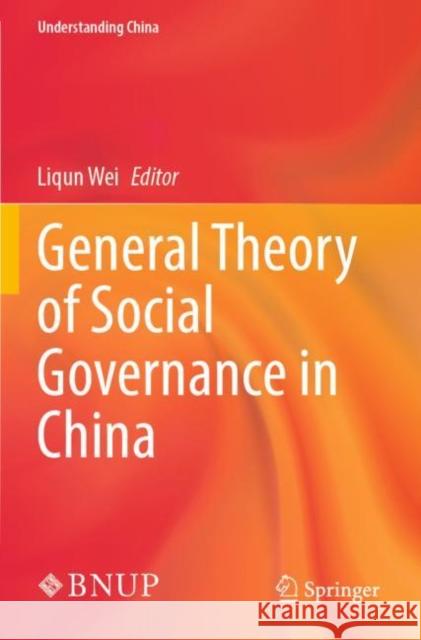General Theory of Social Governance in China » książka
General Theory of Social Governance in China
ISBN-13: 9789811657177 / Angielski / Miękka / 2022 / 447 str.
General Theory of Social Governance in China
ISBN-13: 9789811657177 / Angielski / Miękka / 2022 / 447 str.
(netto: 536,72 VAT: 5%)
Najniższa cena z 30 dni: 539,74
ok. 16-18 dni roboczych.
Darmowa dostawa!
This book discusses the connotation and function of social governance and elaborates on social governance thought in classical Marxism, Mao Zedong’s social governance thought, and social governance thought in socialism with Chinese characteristics, especially in Xi Jinping’s New Era. Together, these components constitute the basic theory of social governance in China. Moreover, the book clarifies ancient and modern social governance thought in China and analyzes institutional innovations, practices, and experiences of Chinese social governance. It depicts the evolution and reform of social governance in China both vertically and horizontally. In turn, it addresses the overall system, fundamental institutions, hierarchy, field, and mode of China’s social governance, as well as its connection to national security. It discusses major issues and their causes, together with enhancing mechanisms. In closing, it outlines future trends in Chinese social governance, and its role in and effects on the global governance system.
This book discusses the connotation and function of social governance and elaborates on social governance thought in classical Marxism, Mao Zedong’s social governance thought, and social governance thought in socialism with Chinese characteristics, especially in Xi Jinping’s New Era. Together, these components constitute the basic theory of social governance in China. Moreover, the book clarifies ancient and modern social governance thought in China and analyzes institutional innovations, practices, and experiences of Chinese social governance. It depicts the evolution and reform of social governance in China both vertically and horizontally. In turn, it addresses the overall system, fundamental institutions, hierarchy, field, and mode of China’s social governance, as well as its connection to national security. It discusses major issues and their causes, together with enhancing mechanisms. In closing, it outlines future trends in Chinese social governance, and its role in and effects on the global governance system.











